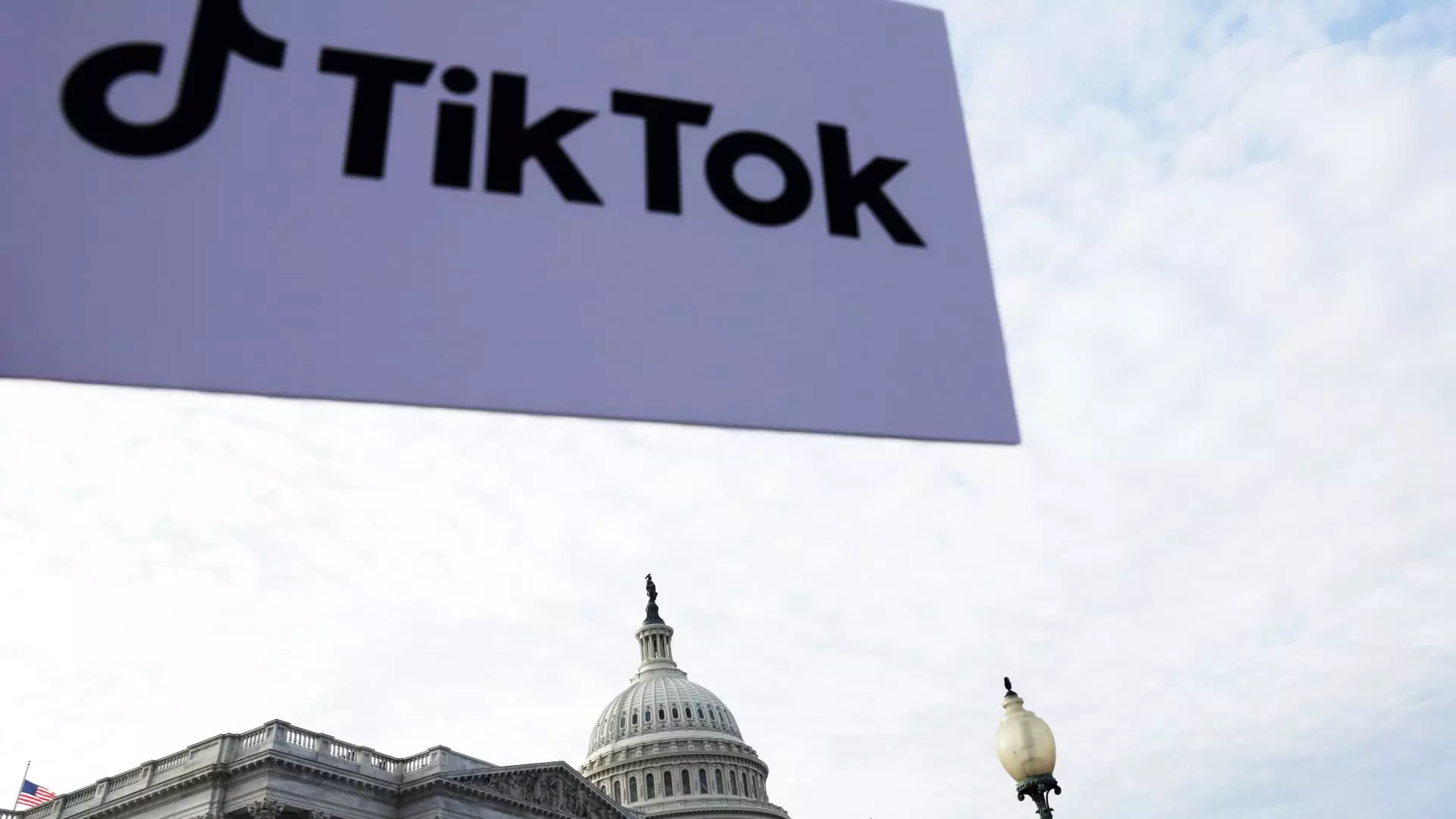Recent developments have brought TikTok’s future in the United States into sharp focus, as members of a House Committee have formally alerted major tech executives from Apple and Google about possible actions regarding the popular app. Lawmakers are emphasizing the urgency of compliance with a law that may effectively lead to a TikTok ban in the country as early as next month. In an intricate dance of regulations and corporate responsibilities, this situation compels both the tech giants and the social media platform to navigate a complex web of legalities, national security concerns, and user rights.
The context for this pressure comes from a ruling by the U.S. Court of Appeals, which upheld a law mandating that Chinese company ByteDance divest its ownership of TikTok by January 19. Should this sale not occur, major app stores operated by Apple and Google will be legally bound to stop supporting TikTok on their platforms. This adds layers of accountability for these corporations, reminding them of their pivotal roles as gatekeepers of digital content.
In correspondence sent late last week to Apple’s Tim Cook and Google’s Sundar Pichai, Representatives John Moolenaar and Raja Krishnamoorthi invoked the principle of corporate responsibility, urging compliance with legal stipulations set forth by the federal government. The intricate language used by the lawmakers reinforces the gravity of the situation, emphasizing that without a divestiture qualified under U.S. law, both companies would be violating regulations by continuing to host TikTok.
This legal maneuvering raises essential questions about the balance between corporate interests and national security. Lawmakers have highlighted that Congress has provided TikTok ample time to address compliance issues, thus framing the issue as an urgent call-to-action rather than a mere regulatory footnote.
In a surprising twist, TikTok has challenged the constitutionality of the law, arguing that it infringes on the First Amendment rights of its vast user base, which includes an estimated 170 million individuals in the U.S. While the courts have sided with the government thus far, this points to a broader question about the rights of users versus the imperative of government regulations aimed at protecting national interests. The question of free speech in the digital realm is particularly pertinent, given the app’s popularity among content creators and small businesses alike.
The company’s have argued that a ban would not just restrict their operations but would tangibly harm U.S. businesses that rely on the platform for visibility and revenue generation. TikTok projected a staggering economic impact, estimating a potential loss of $1.3 billion in sales and earnings for small businesses and creators if a ban were enacted. This highlights the intersection of technology, economy, and policy—where decisions made at the political level can have cascading effects on individual livelihoods and entrepreneurial endeavors.
The debate has further been complicated by the ever-shifting political landscape. President-elect Donald Trump has yet to clarify his stance regarding the enforcement of the ban when he assumes office. His initial fervor for banning TikTok came during his first term but has seemingly tempered, particularly after encounters with key investors in the platform. This ties the issue of national security to broader discussions of economic influence and political motivations, illustrating how interconnected these spheres have become in contemporary governance.
Furthermore, with significant financial stakes at play, especially given the reported substantial investments from major political donors, the motivations behind regulatory narratives are worth scrutinizing. As Trump prepares to take office again, the resolution of this TikTok quandary will likely reflect larger themes of policy-making, corporate influence, and a shifting narrative concerning international relations.
The examination of this impending TikTok ban reveals the multifaceted challenges at the intersection of technology, law, and economics. While national security remains a valid concern, there is an undeniable tension involving user rights and corporate responsibility. As executives prepare to navigate these treacherous waters, the stakes will undoubtedly continue to rise. The upcoming months will be pivotal, not just for TikTok, but for the broader conversation about digital sovereignty, market regulation, and the power dynamics that govern our digital lives. The resolution of this case carries implications that will reverberate far beyond the app itself, influencing the future of social media regulation and user rights in America.

